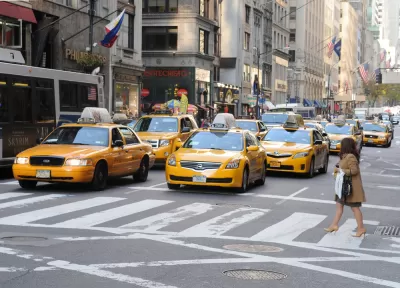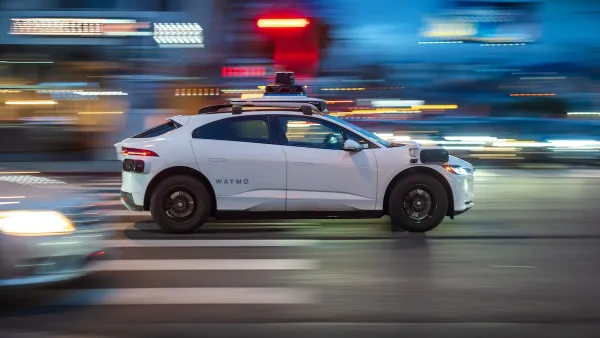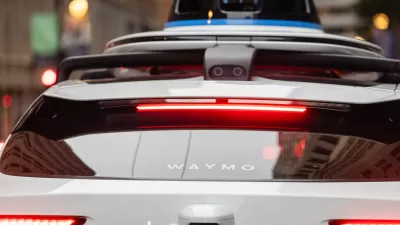With experts predicting widespread autonomous vehicle (AV) adoption in the not-too-distant-future, many policymakers, designers, and ordinary citizens are left scratching their heads, uncertain of what to expect and how to prepare.

We asked John Eddy, who leads Arup’s research into the impact of AVs on the built environment, and Ryan Falconer, head of the firm’s Canadian transportation consulting business, to stage a mock debate about the risks and rewards of a driverless future.
Let’s start with active transportation. John, will AVs make our cities better for pedestrians and cyclists? How will they encourage people to get out of cars and use active transportation, universally acknowledged to be better from the standpoint of public health and greenhouse gas emissions?
John: There’s no question we’ll be able to create a much safer environment for active travel. Shared autonomous vehicles will need less parking and road space than today’s cars, so we’ll be able to devote more space to pedestrians and cyclists. And although the price of car rides should drop with driverless cars, I don’t think that’s going to stop people from using active transportation. There are multiple reasons why somebody walks or rides a bike, and a lot of it comes down to personal preference.
Ryan: I think the convenience of autonomous vehicles will disincentivize people from using active transit. I’ll link that very strongly to one of the points we’ll get to momentarily: sprawl, which will discourage people from taking active transport because of the travel distances involved.
FULL STORY: A civil debate: Are driverless cards good for cities?

Maui's Vacation Rental Debate Turns Ugly
Verbal attacks, misinformation campaigns and fistfights plague a high-stakes debate to convert thousands of vacation rentals into long-term housing.

Planetizen Federal Action Tracker
A weekly monitor of how Trump’s orders and actions are impacting planners and planning in America.

San Francisco Suspends Traffic Calming Amidst Record Deaths
Citing “a challenging fiscal landscape,” the city will cease the program on the heels of 42 traffic deaths, including 24 pedestrians.

Defunct Pittsburgh Power Plant to Become Residential Tower
A decommissioned steam heat plant will be redeveloped into almost 100 affordable housing units.

Trump Prompts Restructuring of Transportation Research Board in “Unprecedented Overreach”
The TRB has eliminated more than half of its committees including those focused on climate, equity, and cities.

Amtrak Rolls Out New Orleans to Alabama “Mardi Gras” Train
The new service will operate morning and evening departures between Mobile and New Orleans.
Urban Design for Planners 1: Software Tools
This six-course series explores essential urban design concepts using open source software and equips planners with the tools they need to participate fully in the urban design process.
Planning for Universal Design
Learn the tools for implementing Universal Design in planning regulations.
Heyer Gruel & Associates PA
JM Goldson LLC
Custer County Colorado
City of Camden Redevelopment Agency
City of Astoria
Transportation Research & Education Center (TREC) at Portland State University
Jefferson Parish Government
Camden Redevelopment Agency
City of Claremont




























